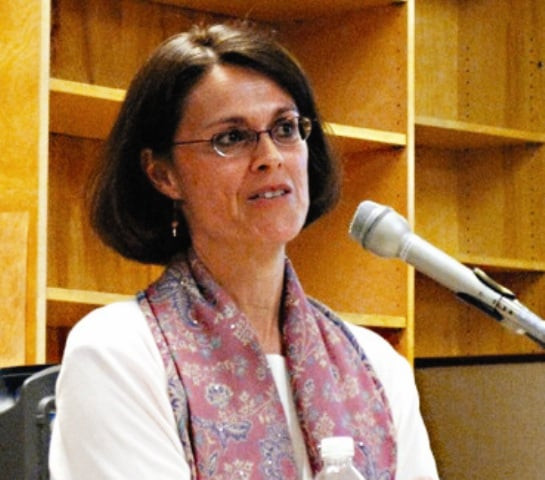Visiting Five Queen’s Road
Sorayya Khan discussed her last novel Five Queen’s Road at T2F on March 22.

Visiting Five Queen’s Road
Lal does not want to leave the newly founded state of Pakistan and go back to India. In hope to settle in Pakistan, he allows a tenant, Amir Ali and his children to take the front portion of his house, sharing the remaining portion. As the years go by, Ali’s son Javid grows up and marries a foreigner, Irene, who comes to Lahore and settles with him.
Through these characters, Khan explores the story of the partition and of World War II. While many contemporary writers like Bapsi Sidhwa have played with the theme of partition, Khan’s perspective is unique as she merges the subcontinent’s history with that of World War II.
During Readings and Conversations with Sorayya Khan at T2F, the writer read a few passages from the novel and discussed her writing with the audience on March 22.
Khan, who currently lives in New York, was born to a Dutch mother and a Pakistani father. Five Queen’s Road comes as her semi-autobiographical account. Published in October 2009 by Penguin India, the book brings what Khan heard about her family home and its residents, dwelling in the same locality that makes the title of the book. The novel is the result of her concentrated research over the years with her: “extended family and most definitely with my father’s sisters [aunts] who were based in the same house.”
Sharing details of her second book, Khan said: “This is my grandfather’s story. He was the Muslim tenant at Five Queen’s Road.” About finding inspiration and writing about it, Khan said: “There is an intersection between political and personal life, that’s why I wrote on this topic.”
Khan’s previous work includes Noor a novel based on the events of the 1971 war. Clad in a royal blue shalwar kameez, when asked what made her so interested in the sub-continent’s history, she said, “People have said my novels are novels of partition and I don’t know for sure what am I more interested in, is it the division or the trauma — what I do know is, that writers are naturally attracted to their subject matter.”
“I am not keen to draw levels of trauma, I don’t want to categorise them. In comparison to the events of 1947 and 1971, I think 1947 was massive, [there] was such upheaval,” Khan added.
Talking about her experience with the publishing world, she said: “The publishing world for most of the [people in the] world is a tricky place. After the recession as well as for the last 15 years and so, the work of [fiction] has been going down.”
Khan further said: “My audience is not widespread in the US but people are interested, they believe fiction is interesting and universal.”
She is currently working on her third novel The Yellow School Bus and The Land of the Pure.
Published in The Express Tribune, March 24th, 2011.



















COMMENTS
Comments are moderated and generally will be posted if they are on-topic and not abusive.
For more information, please see our Comments FAQ